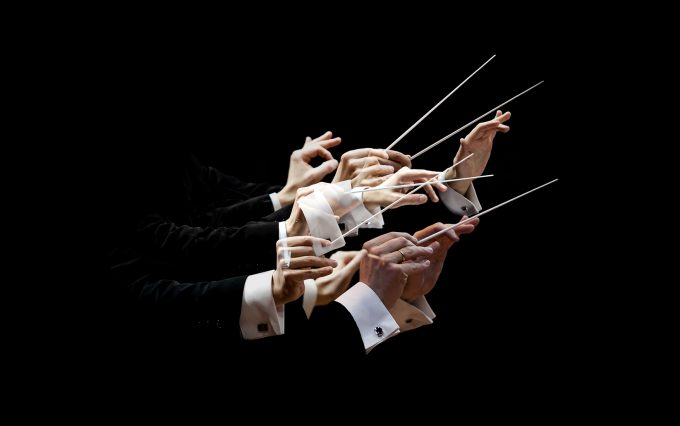
25th October 2022
Non-Fiction
5 minutes read
Finely Tuned
translated by Thomas Cooper

25th October 2022
5 minutes read
When Louis XIV traded Madame de Montespan (his umpteenth mistresses and a woman of the world) in for the serious and deeply religious Madame de Maintenon, he suddenly discovered his own deep religiosity. After Sun King’s sudden enlightenment, Jean-Baptiste Lully, the ballet dancer, court musician, and composer and a man infamous for his loose ethics and promiscuity (and also a favorite of the king), suddenly fell from grace.
In December 1686, the disgraced earl of French music and dance was sitting at his piano,
alternately swearing, snorting pinches of snuff, and beating the keys. He had to win back the Sun King’s affections at all costs, for the king’s favor meant untold quantities of francs for the renowned composer. The ruler, as it so happened, was recovering from successful surgery on a rectal fistula, and the maestro was rewriting the Te Deum he had composed ten years earlier and was going to perform at a mass to celebrate the king’s recovery. He was thinking, all the while, of an old ballet in which, as a young man, the king had danced and played music. He had been the Sun among the planets of Creation. Everything had received its light and sound from him, but every planet was playing on a different instrument, and it had been Lully’s task to create a harmony out of the cacophony on stage and transform it into a cosmic polyphony.
Pythagoras, of course, knew a thing or two about the finely tuned nature of the Universe.
2,000 years before Lully’s creation-ballet and Te Deum, he perceived the distances between diminished thirds and augmented seconds among the planets, and he listened as the spheres played the harmonic hymn to Apollo.
Today, this finely tuned nature of the cosmos is the fourth proof of the divine, according to which, were there no Eternal Conductor, the cacophony of the universe would have been little more than a single, imprecise diminished third: in a fraction of a second, the galaxies would have burned up their hydrogen reserves, or in other words, the universe would have exploded like a giant hydrogen bomb. Meanwhile, we (or perhaps the wandering soul of Pythagoras in us?) would hear as the cosmic evolution, conducting itself, sang the symphony of the mysterious axioms of physics.
By the by, in a gesture of protest, King Louis did not attend the Te Deum performance. Lully, who was known for being irascible, became even more irascible, and while conducting the work, in a moment of regrettable fervor, he hammered his hefty conductor’s staff on his foot so hard that he wounded himself. The Vingt-quatre violons du roi orchestra, however, completed their finely tuned tribute to creation without a conductor (while the conductor, some two months later, died of gangrene from his wound).
What will happen after this thing has come to pass?
When I recently finished scribbling the above composition, which balances on the border between prose verse and essay, I had no idea that I was essentially mulling the question of faith. To be more precise, the question of faith vibrates between the lines like a dawning realization or divination. (And it is precisely this mysteriousness that brings the text closer to a poem, as well as the square mandala shape that symbolizes absolute openness to the Universe, but we’ll set that aside for now.) The real theme of the poem (let’s call it a poem for lack of a better word) is: can the Universe be conceived as a single composition, say a symphony or an opera?
And can we believe in a Cosmic Orchestra without a conductor?
When I was young, I was hardly someone who was “favored by heads of families,” to paraphrase a line from a poem by Hungarian poet József Attila. I rebelled against authority in every form, and I certainly did not acknowledge the existence of some supposed Heavenly Conductor. Today, at my advanced old age (I have already turned 86), for me, the existence or non-existence of God and the afterlife is no longer a question of what the various authorities say. In other words, the main issue of religious faith—non-existence after death—intrudes more and more into my imagination as a question of my actual existence, and thus the existence or non-existence of the Eternal Conductor is increasingly becoming a “problem of its own.”
“What will happen after / this thing has come to pass?” Poet Gottfried Benn asks this question, a question only man can ask, since of all living things, only man knows, all too clearly, of the finitude of existence. Happy are those who believe that in the “hereafter.” The eternal splendor of Heaven awaits them, as the sins they have committed in this world can be offset with a few recitations of the Lord’s Prayer. And happy are the deists, who are quite certain that God’s most trifling concern is far greater than their pitiful earthly wheelings and dealings, and in the hereafter they will manage somehow. Only those are unhappy who, in their search for God, have become convinced of the hopelessness of the entire undertaking, for they must grasp, accept, and understand something many times greater than they.
I know myself to be one such unhappy soul,
and now as I stand on the threshold of the hereafter so fervently sought (of the substance of the divine), in vain do I strive to focus my gaze. Seen from where I stand, the “suffocating depths” are even more suffocating and even deeper, and the fog and darkness vaster.







